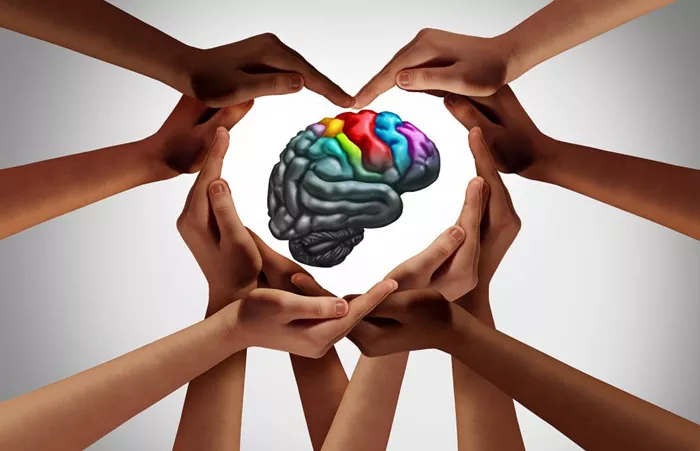Testing positive for HIV is a life-altering event. By incorporating mental health support into HIV services, a more holistic approach to care is achieved, prioritizing the well-being of individuals.
Two years ago, Sujan* received the life-changing news of his HIV positive status at his local health clinic in Kathmandu.
“When I found out about my HIV status, it felt like the world had collapsed and the sky had fallen,” he recalls.
Despite knowing he was at risk, the diagnosis was still a profound shock. “I am gay and still closeted,” he says. “I’ve come out to my brother and cousins, who are thankfully supportive.”
Sujan immediately began antiretroviral treatment (ART), but adjusting emotionally and psychologically took time. Fortunately, his clinic case manager, Pabitra Thapa, provided crucial support. “Pabitra guided me from the very beginning,” he says. “She answered all my questions and made my journey to overcoming the pain much easier.”
Thapa works at the Kathmandu City Clinic, managed by STD/AIDS Counseling and Training Services (SACTS), supported by FHI 360 under the global Meeting Targets and Maintaining Epidemic Control (EpiC) project. EpiC, funded by PEPFAR and USAID, is an eight-year initiative focused on achieving and maintaining HIV epidemic control and enhancing the capacity of government and civil society organizations to manage national HIV programs independently.
Nepal has made remarkable strides toward HIV epidemic control, with a 77% reduction in new infections between 2010 and 2022.
Despite this progress, Nepal continues to experience a concentrated epidemic, characterized by low prevalence in the general population but higher prevalence in key populations such as transgender people, people who inject drugs, sex workers, and men who have sex with men. Globally, stigma and discrimination against people living with HIV and key populations remain significant challenges. Sujan himself has faced discrimination due to his HIV status.
Integrating Mental Health Care with HIV Services
An HIV diagnosis can severely impact mental health, creating additional barriers to accessing essential care and treatment services. Conversely, those with mental health disorders are less likely to start and continue life-saving ART.
This dual challenge is why the Global AIDS Strategy 2021-2026 prioritizes integrating mental health and psychosocial support with HIV services.
EpiC Nepal’s Progress in Integrating Mental Health Services
While EpiC-supported clinics have always provided emotional and social support, the Nepal team expanded their programming last year to integrate mental health services into the HIV care continuum.
At the 37 EpiC-supported clinics in Nepal, case managers and community workers have been trained to offer mental health services alongside HIV prevention, testing, and treatment. This integration allows clients to see a single provider who addresses all their needs related to HIV diagnosis and care. Case managers conduct screenings for mental health conditions, provide counseling and referrals, and offer periodic psychosocial assessments to better understand and address clients’ treatment barriers.
The Kathmandu City Clinic serves around 180 patients monthly from across the country. Thapa, who sees up to 15 clients a day, excels at making patients feel comfortable and building trust. “Counseling is about working together, understanding each other, and maintaining confidentiality so clients can share freely and heal,” Thapa explains. “The client and counselor need a unique bond to navigate the healing journey together.”
Clients at EpiC-supported clinics report that the emotional support they receive at diagnosis influences their adherence to follow-up appointments and ART schedules. “Despite completing a postgraduate program, I believed the virus would kill me within a decade, as I had been taught since childhood,” Sujan says. “Pabitra guided me on taking my ART medication and understanding HIV transmission. She inspired me and reassured me that I can live a long, healthy life like anyone else.”
Sujan’s life has largely returned to normal. His medication has no side effects, and he remains positive. He continues working as a banker and has not felt the need to come out to his wider circle of family and friends.
He regularly visits the clinic to monitor his viral load and pick up medication. His prescription is arranged so that he only needs to visit every other month, and if he cannot make it, case managers discreetly deliver his medication to his workplace, ensuring he continues taking it consistently.
“People should know that HIV is treatable, and those living with it can lead normal lives,” Sujan emphasizes. “To young people, I would say this is not the end of life. Medicine has advanced, and you can still pursue your dreams; be a docto
Related topics:
- Healthline Doctor Services and Covid-19 Helpline Conclude as Part of New Health Strategy
- PM Modi Reaffirms Commitment to Health Infrastructure on National Doctor’s Day
- FUJIFILM Launches NURA Health Screening Center in Hanoi, Vietnam


